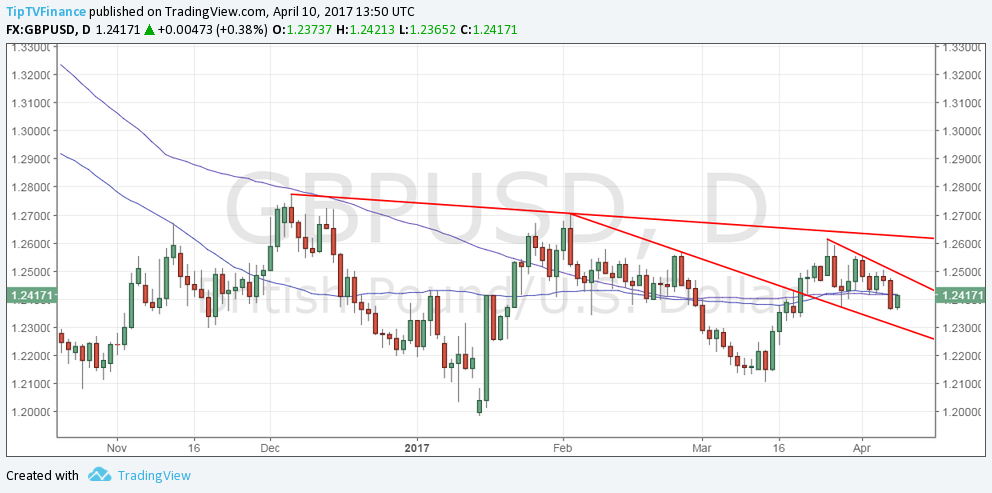Weak Pound, A Net Negative For UK Economy?
A survey released by the payment company Visa earlier today showed the growth in UK households’ spending in Jan to Mar period was the weakest since the end of 2013. The main culprit was inflation.
Spending on traditional retail sectors dropped. Online spending was up by 8.2% annually in March, while face-to-face spending on the high street was down by 1.3% annually. This is another bad news for high street retailers and good news for online retailers like Asos.
The drop in the consumer spending, though not alarming, shows the Brits are feeling the pinch of higher imported inflation (fuelled by weak Pound). That could act as a drag on the GD. Optimists believe the drag on GDP due to weaker consumption could be more than offset by a rise in exports/narrowing of the trade deficit. However, there is no evidence of a correction in the trade situation. The ONS data released on Friday showed the visible trade deficit increased unexpectedly to a five-month high of GBP 12.46 billion. So is the weak Pound acting as a net drag on the economy? Berenberg Economist Kallum Pickering, during his interview with Tip TV, stressed that it would take an inflation print off more than 3% to push spending significantly lower.
Whatever happened to the J-curve theory…?
The 'J curve' refers to the trend of a country's trade balance following a devaluation or depreciation under a certain set of assumptions.
It says that a country's trade balance initially worsens following a devaluation or depreciation of its currency. This is logical since importers worried about a further slide in the currency boost/pre-pone purchases. Meanwhile, foreign importers/buyers delay purchases on speculation the currency of the exporting nation would drop further.
Once the currency starts stabilizing, the foreign demand (exports for home country) rises at a faster rate. However, economic theories are never straight forward and always depend on assumptions.
One such assumption in the J-curve theory must be - healthy global demand. However, we are facing a savings glut and every other economy is trying to compensate for the weak domestic demand by pushing up exports (importing foreign demand via weak currency). Hence, the J-curve theory isn’t applicable here. It is unlikely that the drop in the Pound post-Brexit referendum would help reduce the UK’s trade deficit in a big way, but it will/and is surely pushing inflation higher.
To cut the long story short, the narrowing of the trade deficit wouldn’t be enough to compensate for the drop in the households’ spending (especially if inflation continues to rise). Hence, it is highly essential that wage growth picks up pace.
The latest UK inflation and wage growth numbers, due later this week, will show us if the spending will remain resilient in the months ahead.
The March CPI is seen rising 2.3% in annualized terms. The core CPI is seen moderating slightly to 1.9% from 2.0%. Meanwhile, growth in the average weekly earnings ex-bonus is seen slowing to 2.1% in Feb from 2.3% in January.
The British Pound may strengthen if the UK headline inflation and core inflation beats estimates. A strong wage growth figure would be icing on the cake.
GBP/USD Technicals: 50-DMA support has been breached
Daily chart
(Click on image to enlarge)

The pair may take out the descending trend line hurdle if the UK inflation number beats estimates. A daily close above the trend line would open doors for a revisit to 1.26 levels.
Disclosure: None.




The BOE has striven to help small and medium businesses, something that our Fed does not do. Therefore, the BOE will surely lessen the impact of pound weakness more than the Fed would ever help the US citizen with dollar weakness.